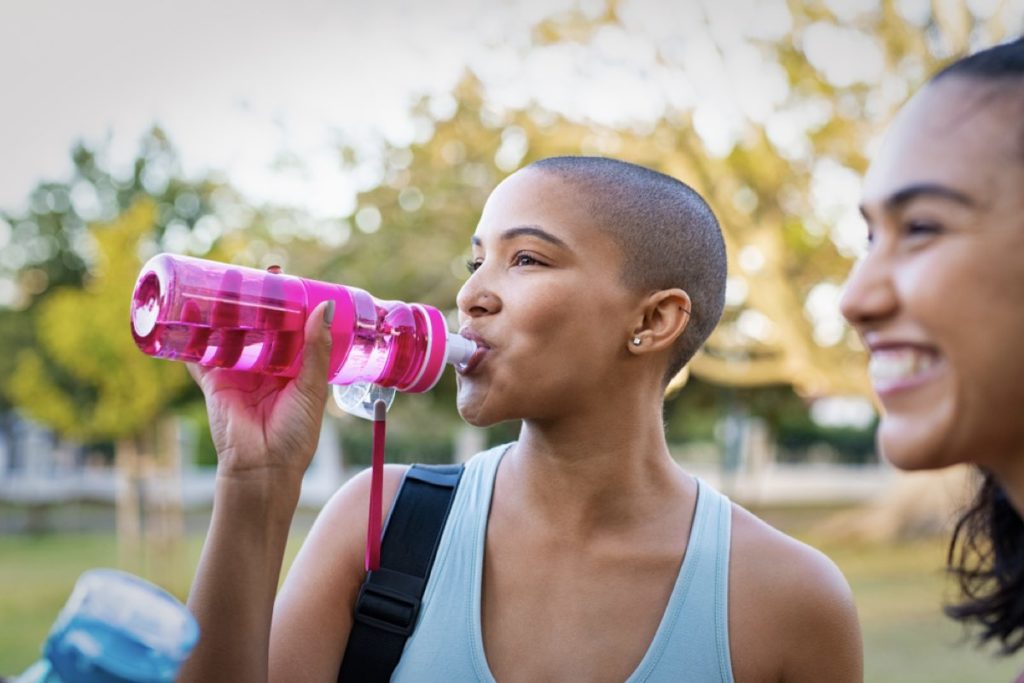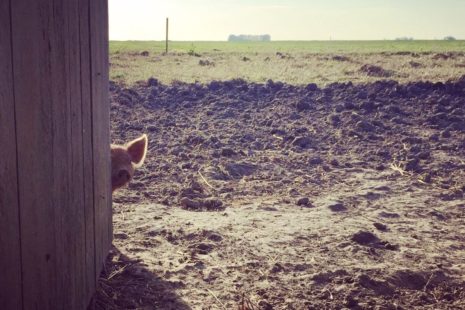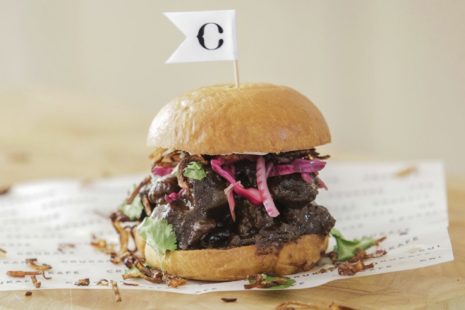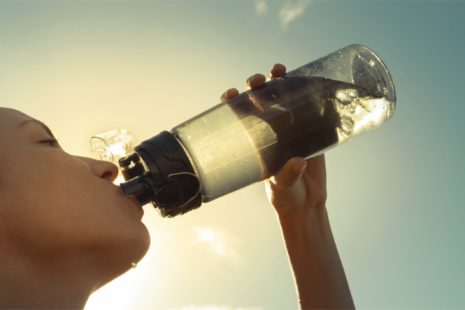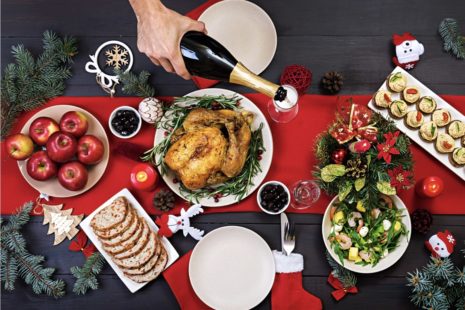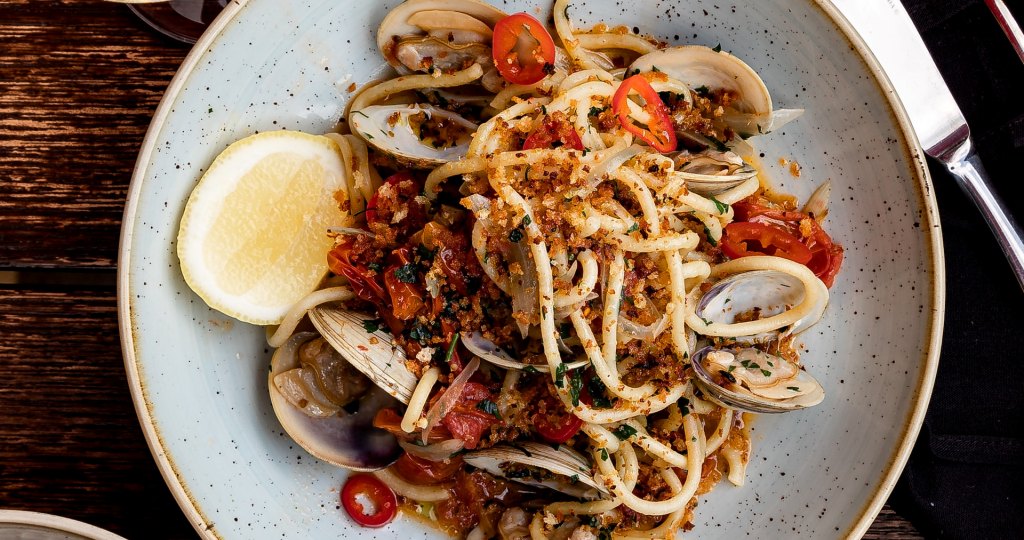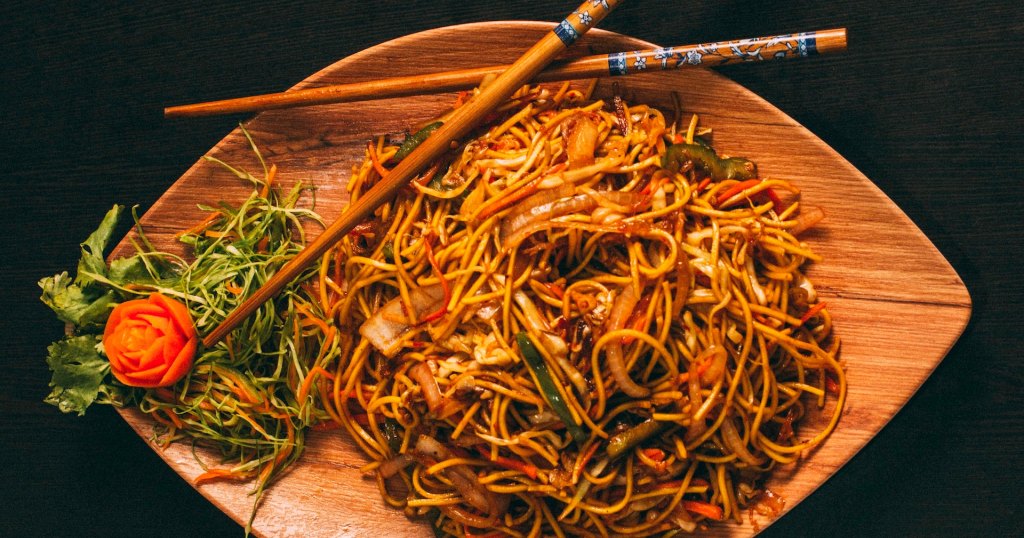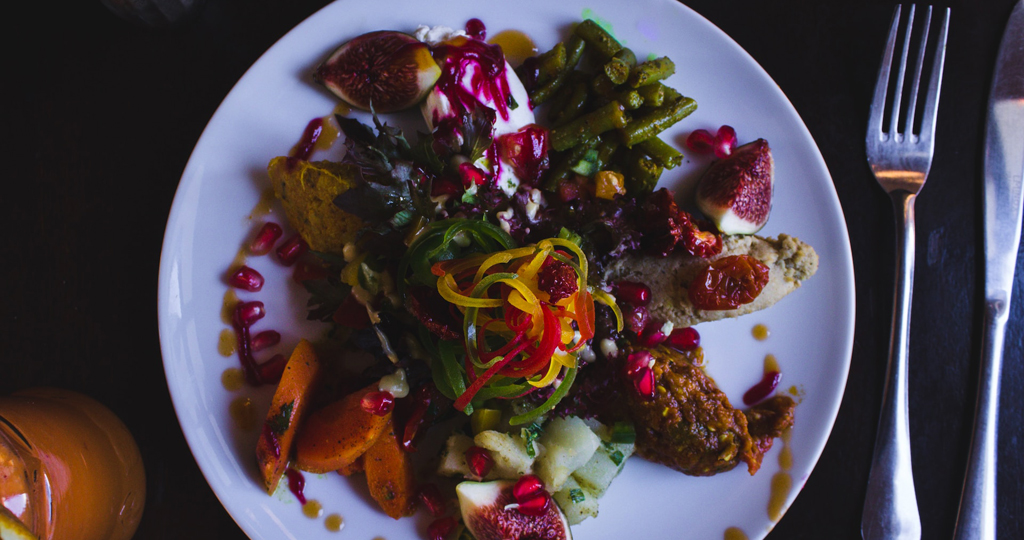We’re all told to hydrate – but is eight glasses a day right for everyone? Possibly not…
Why drink water at all?
“We are around 60% water. If we are not drinking enough this can show up on our skin, our energy levels and may even affect our immune function,” says nutrition consultant Sana Khan.
David Wiener is the training and nutrition specialist at leading fitness app Freeletics. “Every chemical reaction within the body, including energy production and utilisation – which simply means the construction, deconstruction and conversion of substances – needs water as a medium. Only when your body is sufficiently supplied with liquid, enzymes and hormones can develop to their full potential and thus efficiently show off the effects of training and ensure your body is functioning optimally,” he says.
What determines how much we should drink?
“Things to take into account are height and weight, activity levels, climate, caffeine consumption etc. In the UK, during winter we often don’t feel thirsty but central heating can be dehydrating, so it’s essential to top up,” Sana says.
Exercise
“We lose at least 2.5 litres of water a day just by breathing, sweating and excreting. Therefore, there are guidelines in place suggesting that each person drink two to three litres of water each day. However, if you exercise, or are active, it is likely you will have a significantly higher demand for water. Your increased metabolic activity lets you excrete more liquid. Even a little dehydration can lead to serious losses of performance, and a dehydration of 2% of your body weight can even cause permanent damages,” David adds.
The brain
He goes on, “one organ most affected by dehydration is the brain. Strong dehydration can lead to a critical shrinkage; which can affect concentration and leave the ability to think are severely impaired. The central nervous system cannot work effectively, muscular reaction and coordination decrease significantly, strength and endurance drop and even cramps can occur.”
The muscles
David adds, “Among other things, water is required to supply the muscles with electrolytes via the nervous system. Without electrolytes muscles cannot move and contract. Problems such as muscle cramps or low performance are often blamed on a lack of certain nutrients or non-optimised nutrition. But water is a part of nutrition and above all essentially important as a transport and reaction medium. Without water, the body simply cannot process nutrients effectively.”
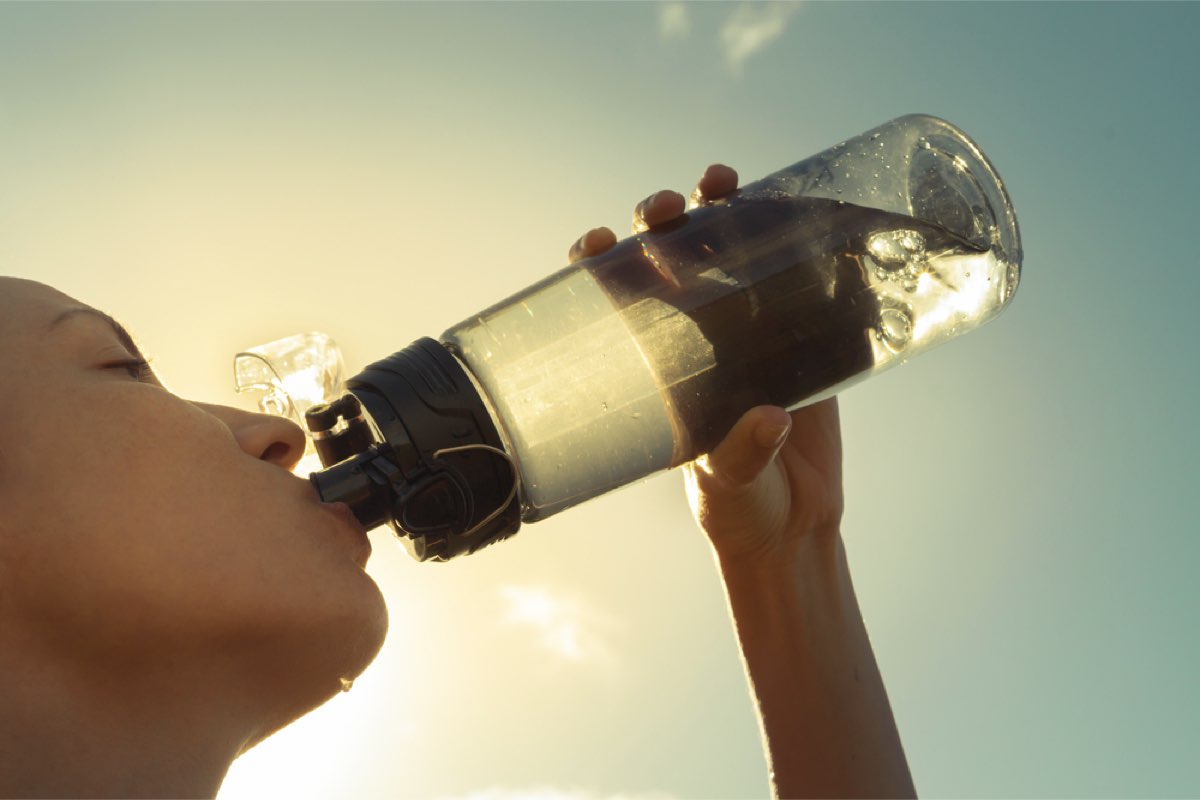
Is there a general rule or formula to follow?
When working out
“On training days, I would advise drinking a minimum of three litres. Intense exercising increases metabolic activity permanently – even at rest. So, the water requirement of those who exercise frequently is always higher than the average. A good guideline is to drink about 50 ml per kilogram body weight throughout the day. At warm temperatures, you should drink one or two litres more as you lose more liquid through sweat,” David says.
“Before, during and after exercising, your demand for water increases even more. Therefore, drink at least one litre about 90 minutes before your workout to keep your muscles hydrated. Water is also important for your joints, as only a hydrated body can provide enough synovial fluid. This fluid is necessary to avoid a strong friction of the joint cartilages, which can lead to long term damage otherwise. After your workout, you should also drink at least half a litre to support regeneration. Water helps to remove waste products such as lactic acid from the muscles which are produced during exercise and to feed the muscle cells with nutrients such as proteins and carbohydrates,” David says.
Jo Hancock is a personal trainer at Everyone Active’s Westminster Lodge Leisure Centre.”The recommendation is to drink 8-10 cups a day – but if you are ‘active’ you need to consume more water as you will sweat it out and need to replace it! If you don’t, this could have unpleasant consequences – dehydration can lead to a plummet in blood pressure, headaches and lethargy,” she says.
The maths
She goes on: you can work out your ‘recommended consumption’ depending on your body weight:
1. Take your weight in pounds and divide by 2.2
2. Multiply by 40 if you are younger than 30, by 35 if you are 30-55, by 30 if you are 55 or older.
3. Divide by 28.3
4. Your total is the minimum total ounces of water you should drink each day.
5. Divide the fluid ounce by 35.195 to get your litres
Example – 136.7/2.2 =62.4 x35 =2184/28.3=77.7/35.195 = 2.2litres
It’s worth noting that if you are exercising during the day, you will need to add in an additional 40 ounces (1 litre) for every 40 minutes you work out.
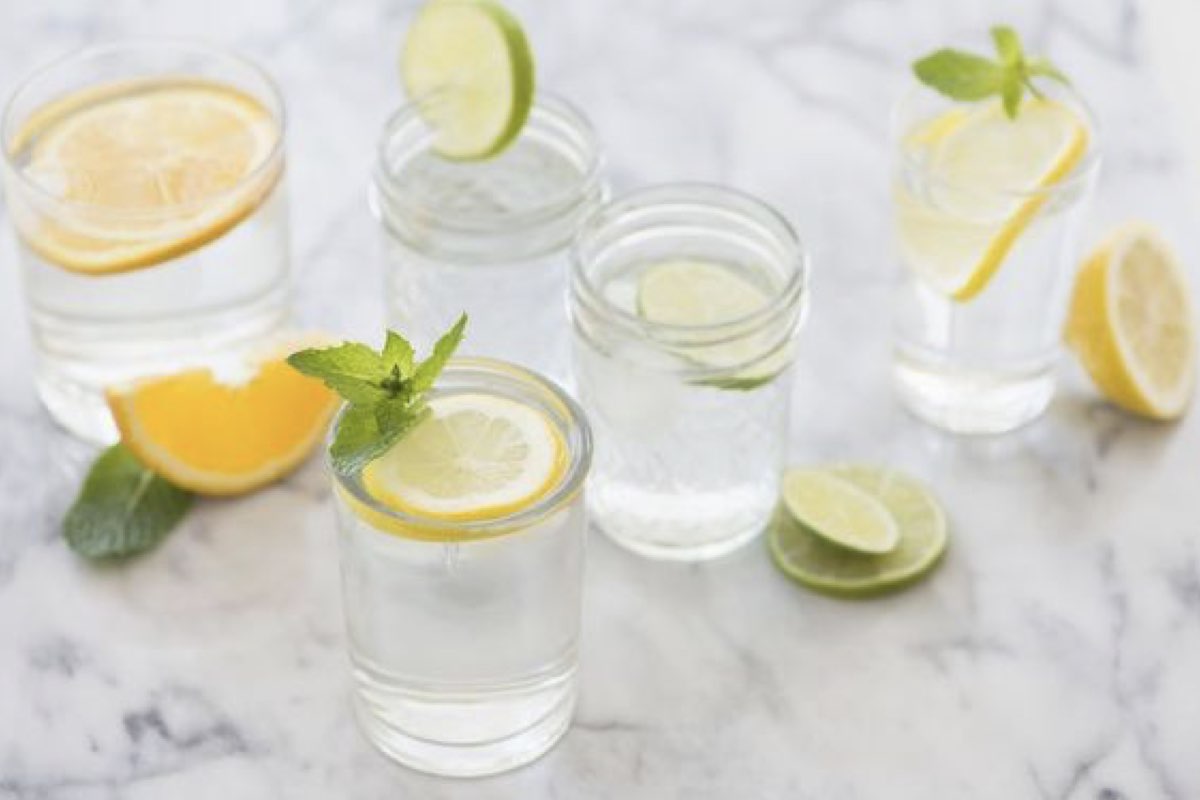
Does it change with time of the month?
“During time of the month, many women often complain of bloating and cramping. Water may help with both of these symptoms but in my opinion I would recommend lukewarm water to drink rather than ice cold,” Sana says.
I’m bored of water…
No problem! “Your water intake can include herbal teas, sparkling water, coconut water and foods that are high in water – celery, watermelon (sugary ‘energy’ drinks don’t count). Listen to your body – it will thank you for being hydrated. Your energy levels will increase, your immune system will have a boost and your internal systems will thank you for the ‘oiling’. Most people I meet are unknowingly dehydrated. Let’s turn for the most natural of remedies – water,” Jo says.
And ultimately, remember: “water intake can even vary with sex and age. There is no one size fits all!” Sana says. Do the maths if you want to be sure, and remember – drink up.
Get your weekly DOSE fix here: SIGN UP FOR OUR NEWSLETTER
